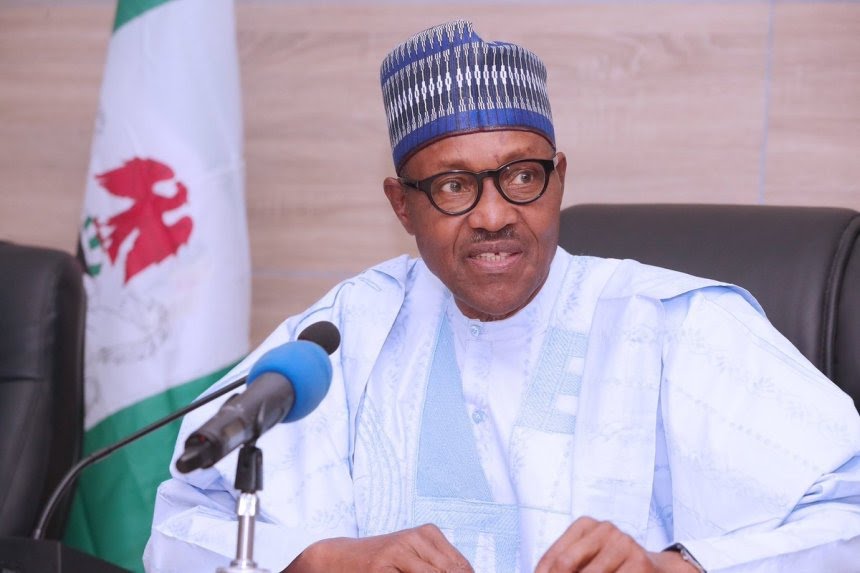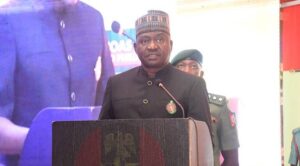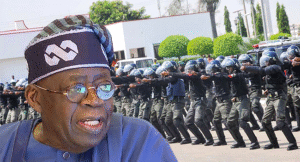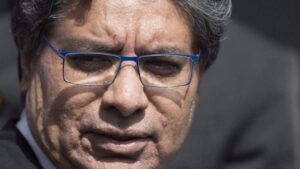
As Nigeria marks her 59th independence anniversary on October 1, President Muhammadu Buhari has urged citizens of the country to rededicate themselves to attaining the goals that the country has set for itself.
He says Nigeria must remain united, prosperous and purposeful nation in the face of 21st century opportunities and challenges.
The President made the call on Tuesday, in his address to the nation on its 59th independence anniversary.
He noted that the sacrifices made by founders of the nation and great leaders past; by soldiers, by distinguished public servants; by traditional leaders, by workers, on which Nigeria has been built over the 59 years since Independence in 1960 will always be remembered.
He said: “1st October each year is an opportunity for us to reflect and thank God for his endless blessings on our country. In the past four years, the majority of Nigerians have committed to Change for the Better. Indeed, this Administration was re-elected by Nigerians on a mandate to deliver positive and enduring Change – through maintaining our National Security; restoring sustainable and inclusive Economic Growth and Development; and fighting Corruption against all internal and external threats.
“This Change can only be delivered if we are united in purpose, as individuals and as a nation. We must all remain committed to achieving this positive and enduring Change. As I stated four years ago, “Change does not just happen… We must change our lawless habits, our attitude to public office and public trust… simply put, to bring about change, we must change ourselves by being law-abiding citizens.”
The Nigerian leader, who is also the Commander in Chief of the Nigerian Armed Forces, took time to praise the effort of war veterans and current officers and men of the country’s Armed Forces and other security agencies for working tirelessly to sustain peace in the country, pledged to do more to secure the nation.
Security
“Good Governance and Economic Development cannot be sustained without an enabling environment of peace and security. In the last four years, we have combatted the terrorist scourge of Boko Haram. We owe a debt of gratitude to our gallant men and women in arms, through whose efforts we have been able to achieve the present results. We are also grateful to our neighbours and allies – within the region and across the world – who have supported us on this front.
“The capacity of our armed forces to defend our territorial integrity continues to be enhanced by the acquisition of military hardware as well as continued improvements in the working conditions of our service men and women.
“The Ministry of Police Affairs has been resuscitated to oversee the development and implementation of strategies to enhance internal security. My recent assent to the Nigerian Police Trust Fund (Establishment) Act has created a legal framework to support our Police with increased fiscal resources to enhance their law enforcement capabilities.
“These initiatives are being complemented by the ongoing recruitment of 10,000 constables into the Nigeria Police Force. This clearly demonstrates our commitment to arrest the incidence of armed robbery, kidnapping and other violent crimes across our nation.
“We remain equally resolute in our efforts to combat militant attacks on our oil and gas facilities in the Niger Delta and accelerate the Ogoni Clean-up to address long-standing environmental challenges in that region,” he said.
Economy
On the economy, he said government was focused on diversifying the economy, in order to accelerate sustainable and inclusive economic growth in all sectors and parts of the country.
“This Administration inherited a skewed economy, where the Oil Sector comprised only 8% of Gross Domestic Product but contributed 70% of government revenue and 90% foreign exchange earnings over the years. Past periods of relatively high economic growth were driven by our reliance on Oil Sector revenues to finance our demand for imported goods and services. Regrettably, previous governments abandoned the residual Investment-driven Non-Oil Sector, which constituted 40% of Gross Domestic Product and comprised agriculture, livestock, agro-processing, arts, entertainment, mining and manufacturing activities that provide millions of jobs for able-bodied Nigerians and utilize locally available raw materials and labour for production.
“To address this imbalance, our commitment to achieving economic diversification has been at the heart of our economic strategies under the Economic Recovery and Growth Plan, which I launched on the 5th of April, 2017.
“This medium-term development plan charted the trajectory for our economy to exit from recession and return to the path of sustainable, diversified and inclusive growth for Nigerians. Pursuant to these reforms, the economy has recovered and we have had 9 successive quarters of growth since our exit from recession. The exchange rate in the last 3 years has remained stable, with robust reserves of US$42.5 billion, up from US$23 billion in October 2016,” the President stated.
President Buhari promised citizens that the Nigerian government under his leadership would be prudent in managing revenues to be generated form oil.
He said: “Learning from the mistakes of the past, this Administration is committed to responsibly managing our oil wealth endowments. We will continue to prudently save our oil income and invest more in the non-oil job-creating sectors.
“In this regard, we are significantly increasing investments in critical infrastructure. Last year, capital releases only commenced with the approval of the Budget in June 2018. However, as at 20th June this year, up to N1.74 trillion had been released for capital projects in the 2018 fiscal year.”
“As we push to diversify the economy, we still remain focused on optimizing the revenues generated from the oil and gas sector. We will, working with the Legislature, soon pass the Petroleum Industry Bill and amendments to the Deep Offshore Act and Inland Basin Production Sharing Contracts Act into law, to ensure Government obtains a fair share of oil revenues, whilst encouraging private sector investment.
“We will also continue our fight against illegal bunkering of crude oil and the smuggling of refined petroleum products across our borders, including the diligent prosecution and conviction of offenders found guilty of these acts. Whilst Nigeria remains committed to free and fair continental and international trade, we will not hesitate to take all necessary steps to tackle illegal smuggling, transshipment and other predatory trade practices that destroy jobs in our country.”
Capital Projects
According to the President, his administration will fast track the implementation of capital projects captured in this year’s budget, in order to enhance development.
“Implementation of the 2019 Capital Budget, which was only approved in June 2019, will be accelerated to ensure that critical priority projects are completed or substantially addressed. The Ministry of Finance, Budget and National Planning has been directed to release N600 billion for Capital Expenditure in the next 3 months.
“To maximise impact, we shall continue to increasingly welcome and encourage private capital for infrastructural development through Public Private Partnerships. Through the Road Infrastructure Tax Credit Scheme, which I initiated in January this year, we are giving incentives to private sector inflow of over N205 billion in 19 Nigerian roads and bridges of 794.4km across in 11 States of the Federation.”
Power
The Nigerian leader expressed confidence that would soon enjoy uninterrupted electricity.
He said government was resolute in achieving that, as it was already working in partnership with a German company, Siemens, to achieve electrification solutions that would resolve the country’s transmission and distribution challenges.
“The programme will also look to localize the development and assembly of smart meters as well as the operations and maintenance capabilities of transmission and distribution infrastructure.
“I am pleased with the improved inter-agency collaboration between the Ministry of Power and the regulators in the banking and power sectors to ensure that electricity sales, billings and collections are automated and become cashless.
“These initiatives are important to ensure that the technical and collection losses in the sector are substantially reduced. I remain confident that Nigerians will have affordable and uninterrupted electricity supply in the not too distant future,” the President added.





